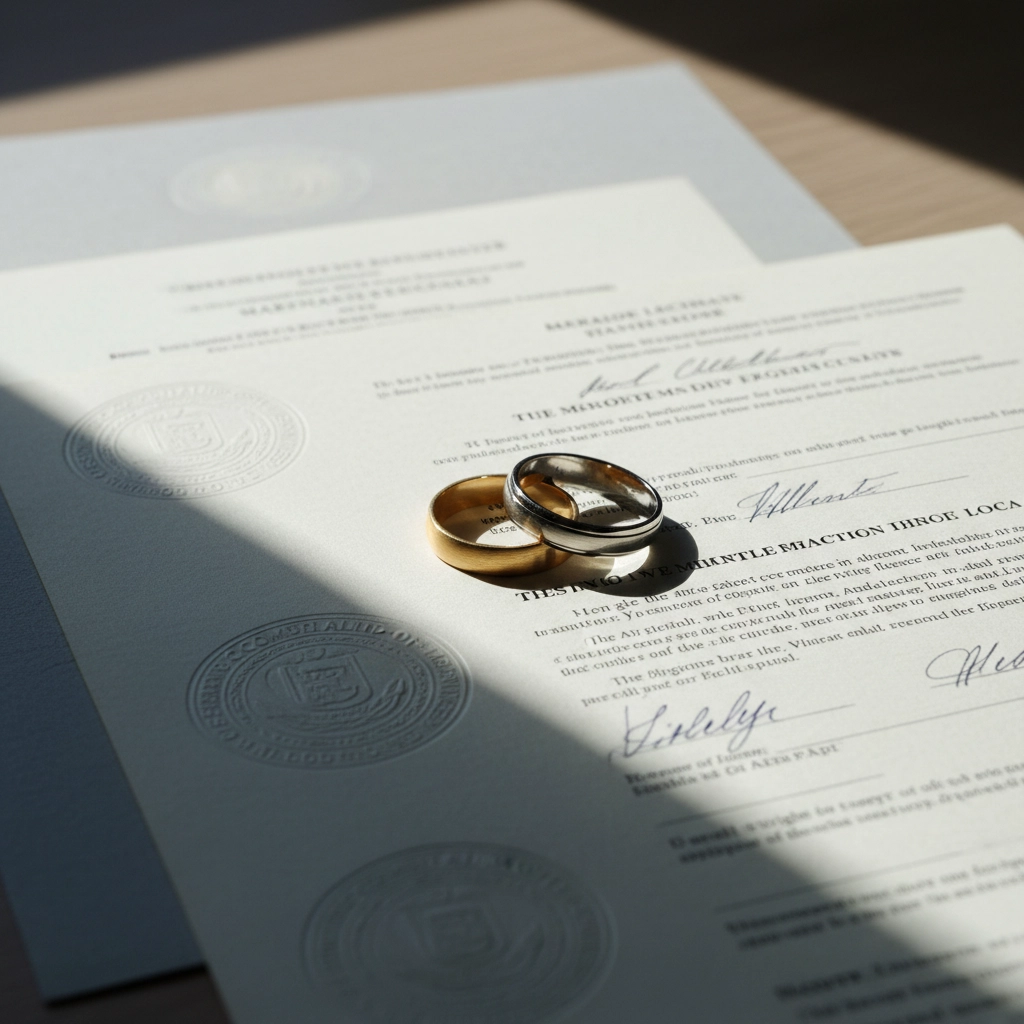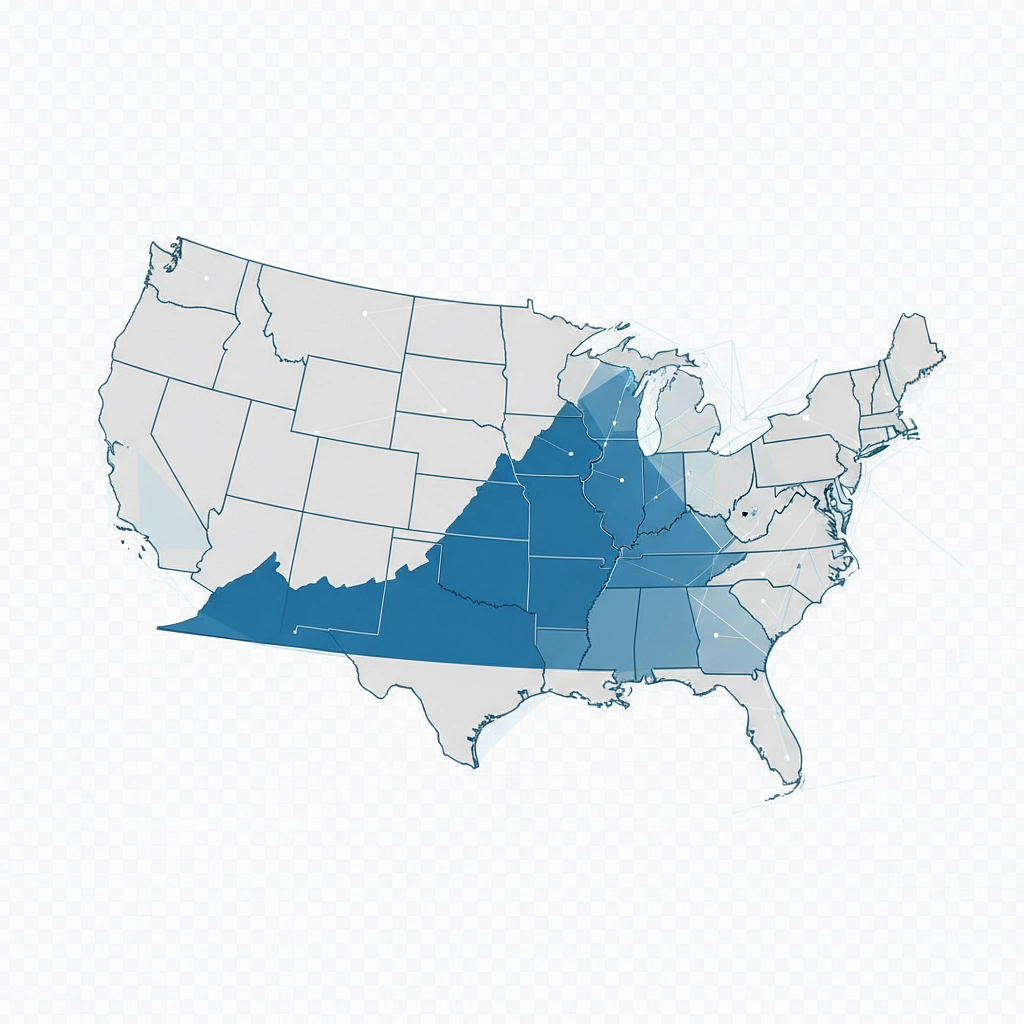Same-Sex Marriage Laws by State in 2025: What Virginia Couples Need to Know Before the Supreme Court Rules
- brookthibault
- Nov 4, 2025
- 5 min read
The Supreme Court is scheduled to consider a challenge to same-sex marriage on November 7, 2025: just days away. If you're a Virginia couple concerned about your marriage rights, you need to understand your legal position right now. At Coastal Virginia Law, we're here to help you navigate this uncertain legal landscape. Contact us today for a consultation to discuss your specific situation and protect your rights.
The Current Legal Reality in Virginia
Same-sex marriage has been legal in Virginia since October 6, 2014, following the federal court ruling that struck down the state's marriage ban. Today, same-sex couples enjoy the same legal protections as heterosexual couples, including the right to marry, divorce, and receive equal treatment under Virginia's family law system.
However, Virginia's situation is uniquely precarious. Unlike many states, Virginia still has a 2006 constitutional amendment on the books that explicitly bans same-sex marriage. This amendment is currently unenforceable due to the federal Obergefell v. Hodges ruling, but it creates a ticking time bomb scenario: if the Supreme Court overturns Obergefell, Virginia's ban would immediately spring back into effect.

Why Virginia Couples Are at Risk
Virginia is one of 32 states where same-sex marriage would be automatically prohibited if federal marriage equality protections disappear. This puts Virginia couples in a particularly vulnerable position compared to states that have already removed discriminatory language from their constitutions.
The concern isn't theoretical anymore. Following the Supreme Court's decision to overturn Roe v. Wade in 2022, advocates warn that other long-standing precedents: including marriage equality: are no longer secure. Justice Clarence Thomas explicitly suggested in his Dobbs concurrence that the Court should reconsider Obergefell, making this threat very real.
What This Means for Your Marriage
If you're currently married in Virginia, your marriage remains valid and legally recognized. However, if Obergefell is overturned:
Virginia's constitutional ban would immediately take effect
New same-sex marriages would be prohibited
Your existing marriage's legal status could face challenges
Interstate recognition of your marriage could become complicated
Virginia's Constitutional Amendment Effort: A Race Against Time
Recognizing this vulnerability, Virginia lawmakers have initiated a multi-year process to remove the constitutional ban on same-sex marriage. During the 2025 legislative session, a bipartisan group advanced the first resolution to repeal the discriminatory amendment and create an affirmative right to marriage regardless of sex, gender, or race.

The Amendment Timeline Challenge
Here's the critical timeline Virginia couples need to understand:
January 2026: The Virginia General Assembly must vote again on the constitutional amendment November 2026: If passed by the legislature, Virginia voters would decide on the amendment in the general election November 7, 2025: The Supreme Court considers whether to hear the marriage equality challenge (just days from now)
The problem is obvious: the Supreme Court could act before Virginia's constitutional protections are in place. This timeline mismatch leaves Virginia couples potentially exposed for up to two years.
Understanding Your Current Rights and Protections
Despite the uncertainty, same-sex couples in Virginia currently enjoy comprehensive legal protections:
Marriage and Divorce Rights
Same-sex couples can marry in Virginia and have access to all the same legal benefits as heterosexual couples. If your marriage ends, you have the same rights to equitable distribution of marital property, spousal support, and custody arrangements.
For couples considering divorce, Virginia's divorce laws apply equally regardless of your gender or sexual orientation. You must meet Virginia's residency requirements: living in the state for at least six months before filing.
Property and Financial Considerations
Virginia's equitable distribution laws treat all married couples identically. This means that in a divorce, marital property is divided fairly (though not necessarily equally) based on factors like each spouse's contribution to the marriage, the duration of the marriage, and each person's financial circumstances.
However, if you lived together for years before same-sex marriage became legal, there may be questions about what constitutes "marital property." Courts haven't definitively resolved whether assets accumulated during long-term cohabitation before legal marriage would be included in marital property calculations.

Immediate Steps Virginia Couples Should Take
Given the legal uncertainty, here are actionable steps you can take right now to protect your interests:
For Unmarried Couples
Consider marriage before any Supreme Court ruling. Marriage equality advocates strongly recommend not waiting for Virginia's constitutional amendment process to play out. Getting married now ensures you have maximum legal protections under current federal law.
Prepare comprehensive legal documents. Whether you choose to marry or not, ensure you have:
Powers of attorney for healthcare and financial decisions
Advanced directives and healthcare proxies
Updated wills naming each other as beneficiaries
Joint ownership documents for shared property
For Currently Married Couples
Review your legal documents. Make sure all your paperwork reflects your married status, including:
Updated beneficiary designations on retirement accounts and insurance policies
Joint tax returns and financial accounts
Healthcare directives that reference your spousal rights
Consider a prenuptial or postnuptial agreement. These agreements can clarify property rights and provide additional protection, especially if you have complex finances or blended families.
Document your relationship history. Keep records that establish the timeline of your relationship, especially if you lived together before marriage became legal.
The Religious Liberty Component
Virginia's proposed constitutional amendment includes important protections for religious organizations. Religious institutions and clergy acting in their religious capacity would retain the right to refuse to perform marriages that conflict with their beliefs.
This balanced approach aims to protect both marriage equality and religious freedom, addressing concerns that have historically made marriage equality legislation more controversial.

What Happens If Obergefell Falls?
If the Supreme Court overturns federal marriage equality protections, Virginia couples would face several scenarios:
Immediate Impact
No new same-sex marriages could be performed in Virginia
Virginia would not be required to recognize same-sex marriages from other states
Federal benefits tied to marriage recognition could be affected
Existing Marriages
The legal status of existing marriages would likely face court challenges. While it's unclear exactly how this would play out, couples could face:
Questions about their marriage's validity in Virginia courts
Complications with divorce proceedings
Issues with inheritance and property rights
Problems accessing spousal benefits
Interstate Complications
Even if your marriage remains recognized in Virginia, you could face problems when traveling or moving to other states. Without federal protections, states would have more latitude to refuse recognition of same-sex marriages performed elsewhere.
This could affect everything from hospital visitation rights to joint tax filing status when you're outside Virginia.
The Bottom Line for Virginia Couples
The legal landscape for same-sex marriage in Virginia is more uncertain today than it has been in over a decade. While your rights are currently protected, the combination of Virginia's constitutional ban and potential federal changes creates real risks.
The most important thing you can do is stay informed and take proactive steps to protect your relationship and your rights. Whether that means getting married before potential Supreme Court action, updating your legal documents, or simply understanding your current protections, knowledge and preparation are your best defenses.

How Coastal Virginia Law Can Help
Navigating marriage and family law during uncertain times requires experienced legal guidance. At Coastal Virginia Law, we understand the unique challenges facing same-sex couples in Virginia's current legal environment.
We can help you:
Review and update your legal documents to maximize protection
Navigate marriage, divorce, or custody proceedings
Understand how potential legal changes might affect your situation
Plan for different legal scenarios
Don't wait until legal changes affect your family. Contact Coastal Virginia Law today to schedule a consultation and ensure your rights are protected, whatever the future brings. Our experienced team is here to provide the guidance and advocacy you need during these uncertain times.
Your marriage and your family deserve the strongest possible legal protections. Let us help you secure them.


Comments